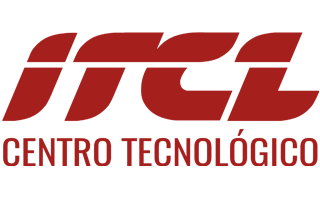 e@Solar – Adapting and Installing Effective Training System for Solar Energy
e@Solar – Adapting and Installing Effective Training System for Solar Energy
European Project
File: 2012-1-TR1-LEO05-35124
One of the main objectives of the e@solar project is to deeply understand the situation of the solar Energy in different European countries in order to provide new information and training tools to assist decision-making regarding to the introduction of solar energy technologies.
The project aims at creating awareness of the solar energy potential, broadening the use of solar energy, analyzing the productivity of the present solar systems and personal improvement of the vocational education in this sector.
Creating awareness of the solar energy potential, broadening the use of solar energy, analyzing the productivity of the present solar systems and personal improvement of the vocational education in this sector could be listed some of the objectives of this project. To provide a description of the Project focused on worldwide use of solar energy as cheap, renewable, environmentally friendly, productive energy source beside personal vocational improvement of technicians.
Through the platform implemented for training, the E@SOLAR’s developer and partners envisage also to establish a data bank on the best practices in the field of use of renewable energies, as well as a channel of information on European and national legislations concerning the matter.
Consortium
The project consortium is created with the collaboration of four different countries: Turkey, Spain, Germany and Portugal and institutions covering all the different educational roles, such as Universities, technological centers, Technical schools and enterprises associations.
The consortium members are:
Nigde U. (TR-TURKEY) as managing the Project, Çankırı Karatekin U. (TR), Friedrich-List-Schule(GERMANY), The Technological Institute of Castilla YLeón (SPAIN), Hydronergy (TURKEY), Izmir – Buca Vocational and Technical High School(TR), Associasão de Amizade Luso Turca(PORTUGAL) and Young Industrialists’and Businessmen’s Association(TR)
Conclusion
The Project and partnership management were consistently planned and systematically coordinated during the whole project until this moment. The fact, that there were no significant delays from the project schedule and all results are being delivered as planned is recognized as a significant success factor of project and partnership management.
Applied methodological management approaches, appropriate project partner composition as well as suitable experience and personal characteristics of each team member can be identified as success factors. Monitoring system facilitated tracking progress against profile and outputs and continuous improvement processes.
Partners were involved in preparation and adaptation processes in the very early stages and had the possibility to reveal needs for the Handbook by investigating the market and investigating the national situation. By understanding crucial needs in the national market partners were involved in the active learning process and this consolidated the motivation for acquiring new knowledge and skills.
A wide variety of dissemination activities raised awareness of and increased interest in the project’s activities and results across a broad range of stakeholders. Project partners informed key stakeholders, including partners, policy makers and employers, of the quality, relevance and effectiveness of the project’s activities, raising the profile and emphasizing the need for more work-related activities in Solar training.
Duration: 2012-2015
e@Solar is an European Project. Leonardo da Vinci Programme. Transfer of Innovation

